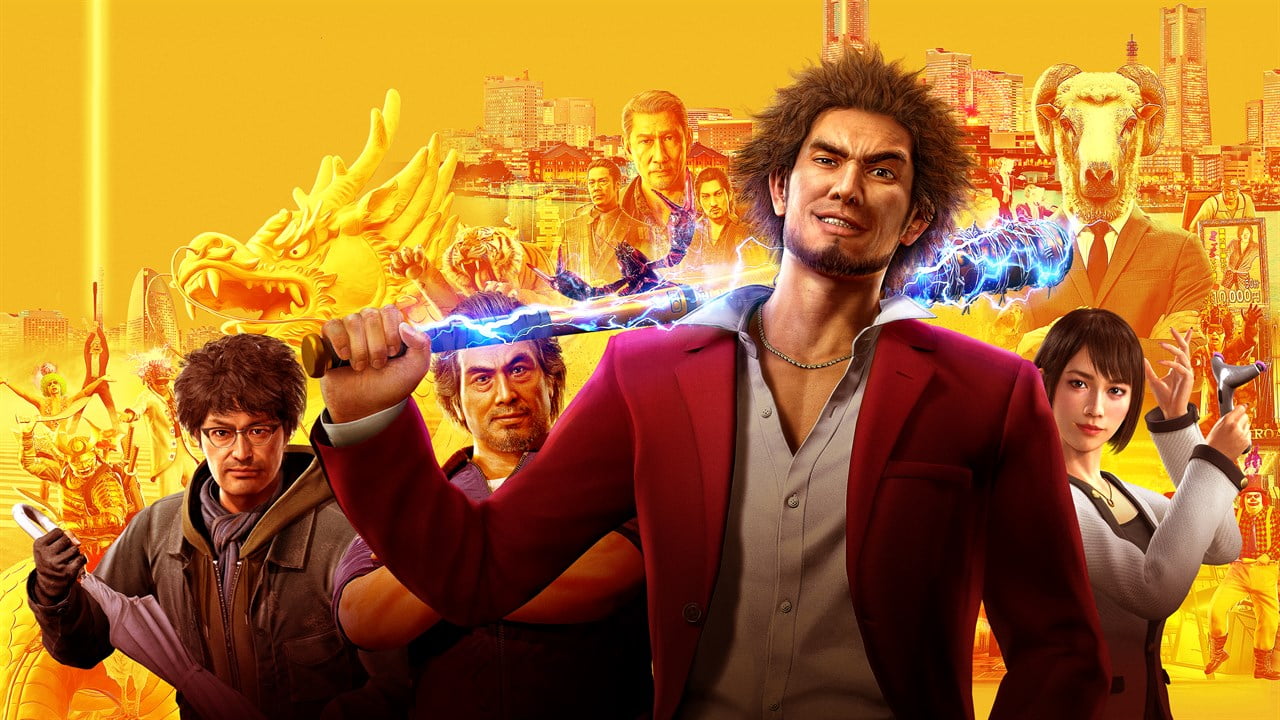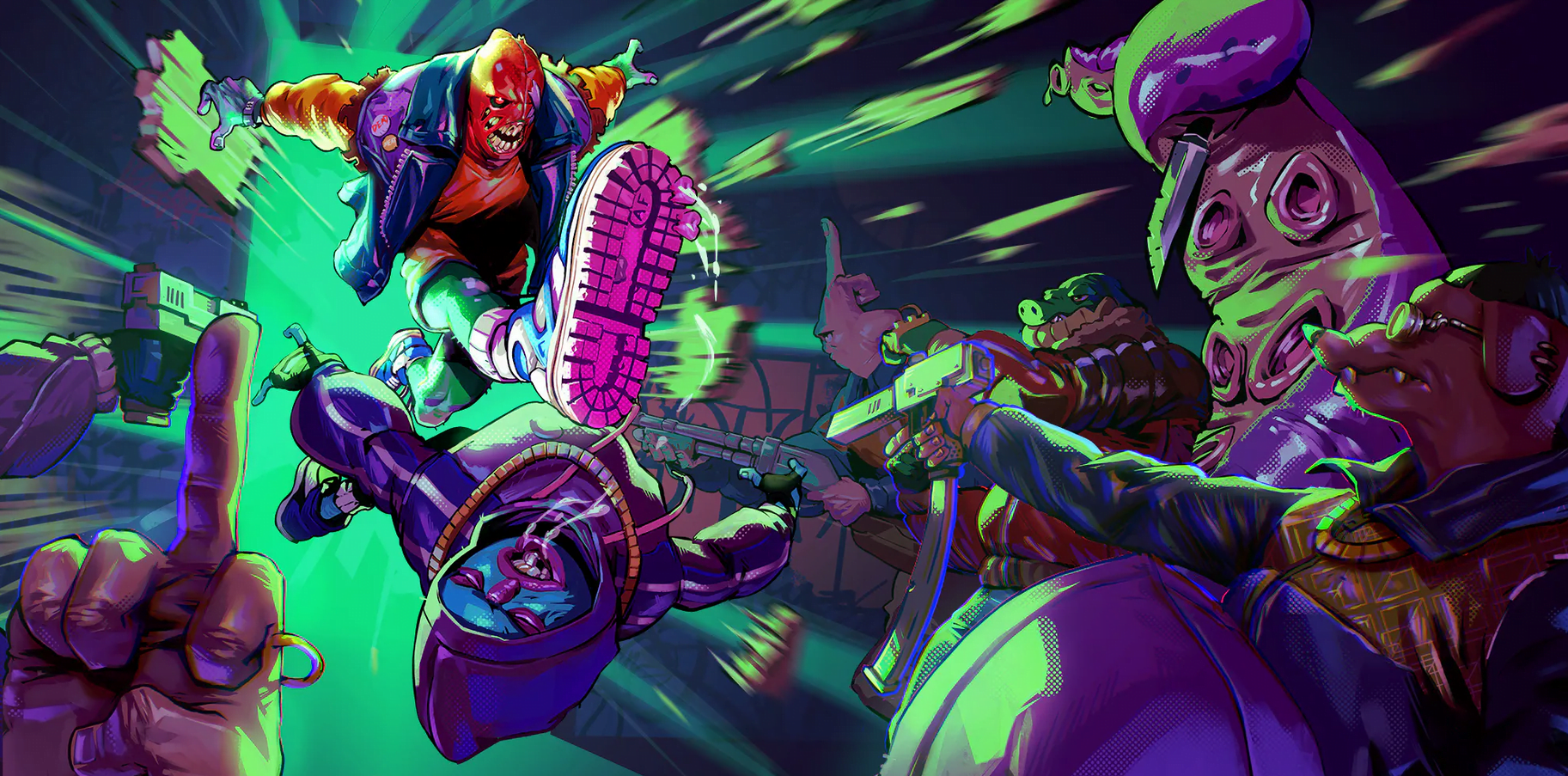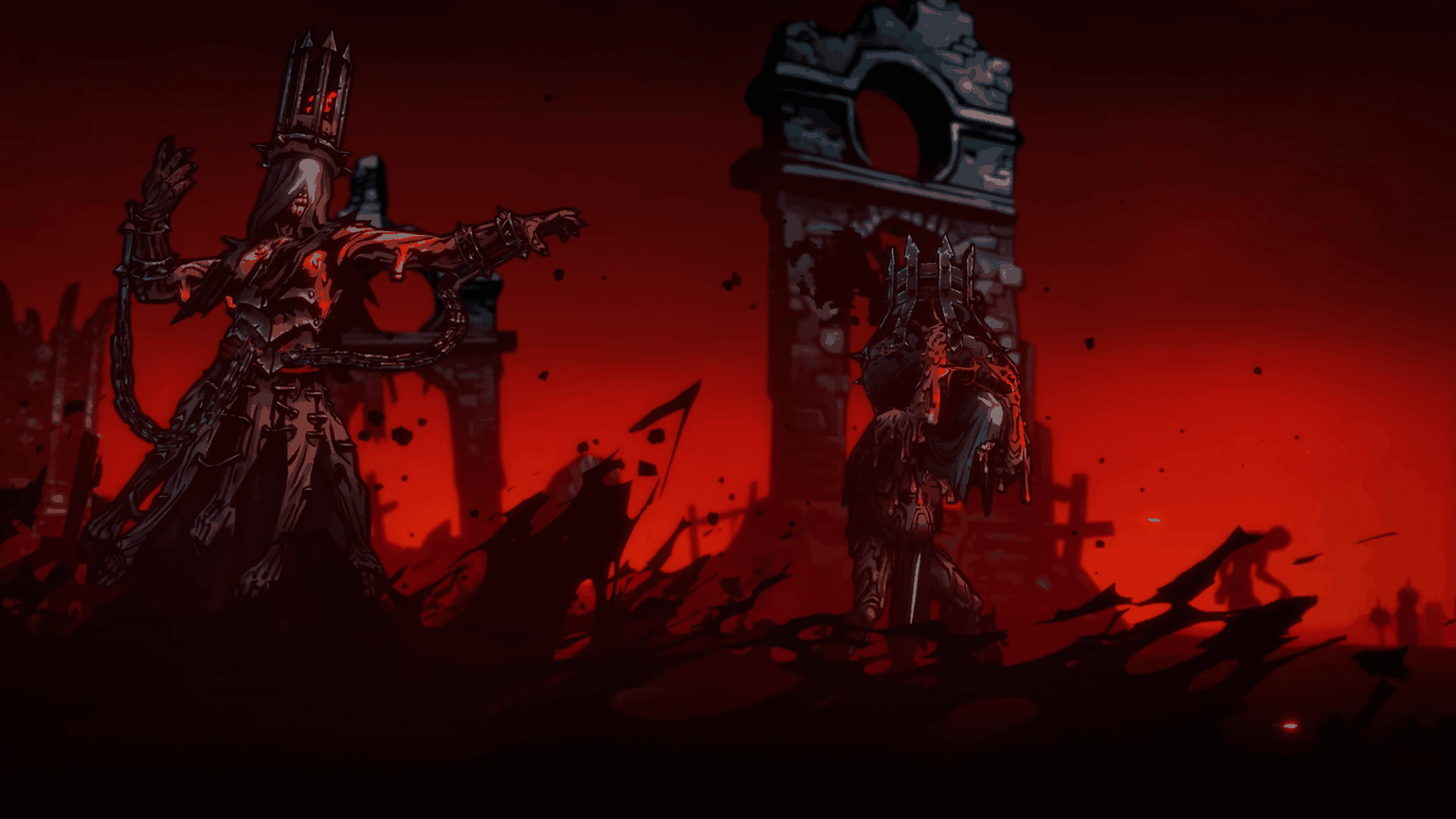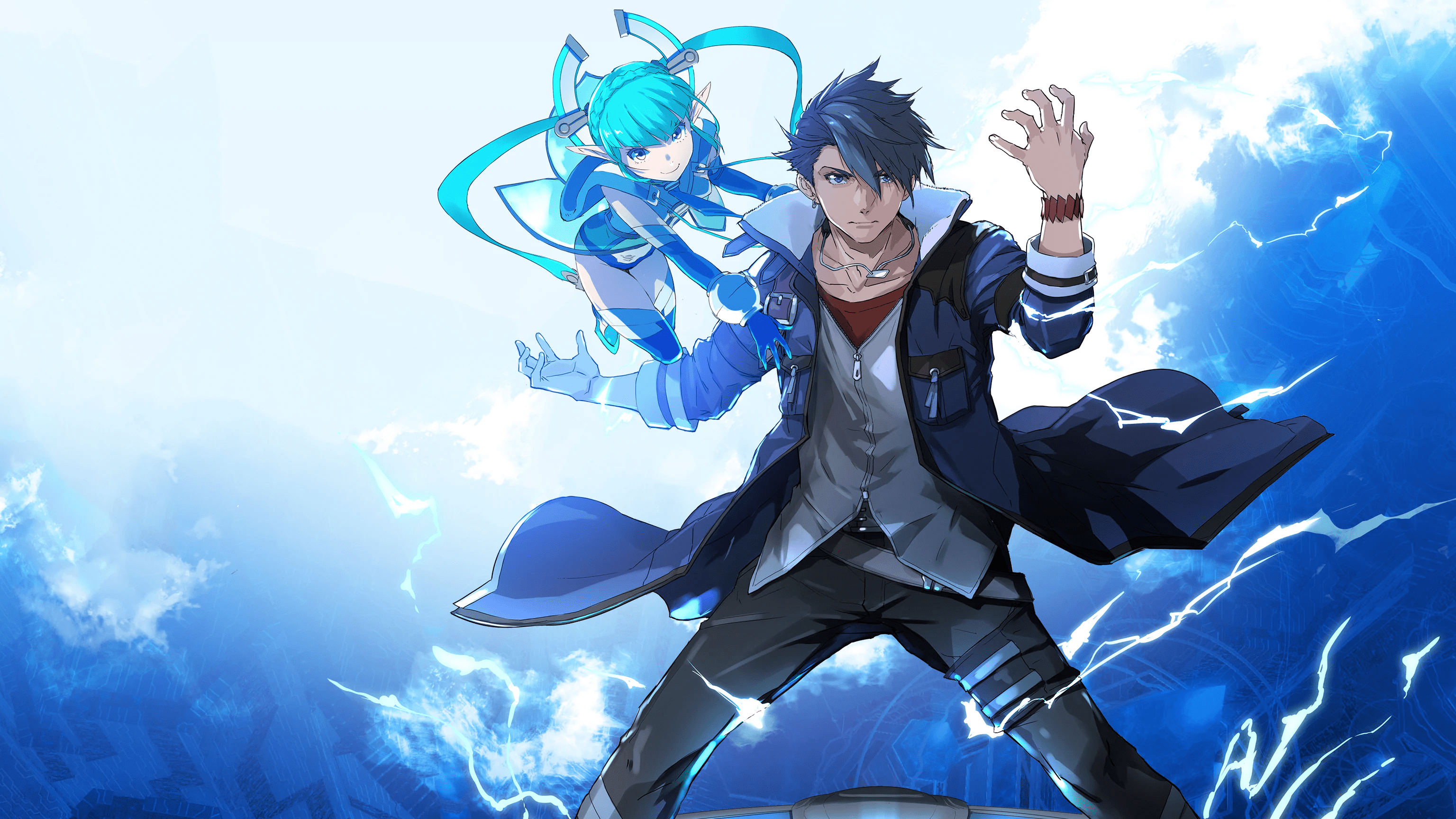Eduardo: What started out as an April Fools joke by Ryu Ga Gotoku became a full game, and what a game at that, right, Callum? I wasn’t planning on reviewing it after playing it on and off on Steam, but now that it’s officially out on PlayStation 5 and you’ve been making your mark on the streets of Yokohama, I figured what the heck! I’ve already put nearly 40 hours into Yakuza: Like a Dragon so far and still have a fair bit until I’m done with it. How are you liking it so far?
Callum: Well, I’m about 60-some hours in, so… it’s pretty good! Bit of a slow start (and a bit rough early on, but we can talk about that later), but I’ve been enjoying it so far.
For as weird as the pivot to being a turn-based role-playing game seemed when it was announced (though I was pretty much on board with it immediately because it’s such a wild change), it fits Yakuza really well, actually? Like, so much of the series’ design transfers between genres pretty seamlessly that it almost makes me wonder why they haven’t tried playing around with different genres more often. I mean, everything outside of combat is pretty flexible. Judgment was already sort of playing around with that idea by changing some of the core verbs (although my understanding is that was still more or less a regular Yakuza game with some detective/Ace Attorney-like bits mixed in), and Like a Dragon feels like an extension of it to some degree.
Granted, that’s all just because Kasuga is a huge Dragon Quest nerd, but I honestly really like that as justification for why Yakuza’s a turn-based game now. It’s like the developers are taking really taking advantage of the change in protagonist and having some fun with it. Which is good! Kiryu was a fun protagonist, but it’s fun to see what the team can do now that they’re really playing around with what sort of perspectives we’re seeing the game’s world through. If the Yakuza series is to continue (and at this point I don’t see it stopping now that it’s gotten more popular outside Japan), I wonder if they’ll continue to change up the gameplay with each subsequent game or if this is just a one-off or if it’ll just be exclusive to any potential future games staring Kasuga (assuming his story doesn’t end in such a way that makes that impossible; haven’t finished it yet, so no clue where they could go after this).
How’d you feel about the change in genre?

Eduardo: Well, considering that the fighting in the earlier games to me is by far the weakest part of the experience, I think that the turn-based combat is a nice change of pace. Then again, the “random battles” can get a little repetitive after a while. I really like having a party to run around with and they’re pretty capable. I would’ve liked to have more class variety and more unique jobs for each of the party members. I mean, they do have their own when it comes to Kasuga and eveyone’s starting “job”, but it would’ve been cool to get some more per character. I do love the conceit behind the job system, though! It’s hilarious and somewhat realistic at the same time, they do need money to keep adventuring, after all.
The story makes for some pretty nutty situations for the gang to get into trouble in, and for as out there as it is at times, it fits in well in the pantheon of Yakuza. Without getting into spoilers, it was fun to see the backstory for some folks that popped up in earlier games that take place after Like a Dragon, and it makes their eventual fates even more emotional when you think about the struggle they go through here. I was surprised to see one of them in particular, who was somewhat of an anti-hero before and turned out to be a really good friend and party member in this game.
Sure, there’s a lot of room for fan service just about everywhere in Like a Dragon, but think about it, we’ve been playing these games for almost two decades at this point, they’ve earned it, right? How did you get in with the overall tone of this one, Callum? Did you like the minigames and how they relate to the story?
Callum: I thought the previous games’ combat was all right. It wasn’t anything special, but it was an all right brawler. Like A Dragon still definitely has the problem of random fights becoming a slog eventually, but I feel like that’s just a problem with RPGs writ large. There’s satisfaction in being able to wipe a group of enemies instantly, turning random encounters into nothing more than a minor inconvenience, though. Battles are certainly much faster to get through here than in other Yakuza games, at least.

I think the job variety was fine, I just wish they felt more… useful, I guess? For a lot of the characters, it feels like their base jobs are their best ones, the rest feeling like something you only really need to level up enough to get some extra abilities from before abandoning. Like, I had Nanba swap a bunch just to get some extra elemental skills to round out the kit of his base class, and had everyone else swap like once just to get an extra skill or two, but past that, they haven’t felt especially worthwhile. I don’t know. Maybe there’s something I’m missing.
Still haven’t finished the story yet (getting there, though!), but it’s very much a Yakuza story, for all the good and bad that brings. I’ve been enjoying it on the whole, but I feel like there’s definitely some problems, particularly early on. Not because it’s slow (in typical Yakuza fashion), but because it’s… like, this is a game that positions itself largely as being empathetic toward the more marginalized and vulnerable groups in society, right? It clearly makes those a focal point on that what with the focus on “grey zones,” Bleach Japan’s entire shtick, and how they all intersect, but it also feels like the game can’t quite commit to it.
(Spoilers for the early hours of the game ahead.)

The early story beats in Yokohama, for example, Kasuga ends up in a homeless encampment immediately upon being dumped in Ijincho after being shot by his boss. Here’s this guy who just got out of prison after an 18 year sentence expecting to instantly resume his old life only to find everything has changed drastically, such that he literally nothing — no cash, no contacts, no shelter. He’s literally on his own and was then left for dead. But the local homeless folks take him in with basically no questions asked and help him get acquainted with how to survive in his current circumstances. All the while, Kasuga learns how difficult it is to be homeless and how society specifically entraps people there. Like, Kasuga decides to try and just find a job at one point and immediately learns how it’s not that simple. Don’t have a home address? Well, you’re out of luck then. Can’t get a job without one. The whole experience gives Kasuga a much better understanding of their plight and suggests the game is actually invested in treating them with dignity.
Then the game quickly pits you against enemies called “Hungry, Hungry Homeless” and “Battle Bums” not long after, which immediately undercuts all that.
The introduction with Nonomiya isn’t good, either. Like, here’s this guy that becomes the crux of one of the early big story beats, but he also really sucks. The very first scene we get with him has him being just the worst to his workers, to which both Nanba and Adachi both being like, “hey, fuck this.” Which is great! Fuck that guy! But then Kasuga goes and tries to defend him, which is just… what??? If it was just that Nonomiya was an asshole that Kasuga decided to work for because he and his friends didn’t have much else choice — they’re unemployed and need money and he’s the only option they have at the moment — then okay, sure; I can buy that. We’ve all had to work shitty jobs we didn’t want to get by. That angle would at least be something. But Kasuga’s immediate insistence that Nonomiya’s actually a good guy really doesn’t work when the majority of his on-screen presence paints him as an ass. I know Kasuga’s meant to be someone who wants to see the good in everyone, but it feels weird to have him go to bat for this guy so quickly when we have no reason to give him the benefit of the doubt — doubly so when even Nanba and Adachi are equally perplexed the entire time.
The game tries show Nonomiya’s a good guy after all and that Kasuga was right, but the fact that it largely comes after he’s killed really doesn’t help sell it. I mean, this is a guy who says he specifically hires women who are desperate because they’re likely to work harder, which leads to better business. And we’re supposed to feel bad about him being murdered? Fuck that! Least the plot beats that happen before his death have some fun moments when the gang starts investigating what’s going on.
(End of spoilers)

It sucks because there are plenty of great moments throughout the game. The entire opening act leading up to Yokohama is great! The main party is a fun bunch of characters! All the random conversations the party has while wandering around town, the chats that occur after ordering food, and the drink link scenes being especially good. It helps sell the group as being friends, people who actually hang out together and who look out for each other. Hearing them talk about whatever random stuff’s on their mind while walking about or bonding over a meal is a really nice touch. It’s all very mundane, but that’s why it’s great. The smaller, quieter moments are always some of the best places to see characters interact with one another and they do really well with that here. The drama of the core plot is compelling and even pretty affecting sometimes! (I’d mention some examples, but… very late-game spoilers, and I don’t know if you’ve finished it yet or not, so…) When these games’ stories are good, they’re good.
But then it has all these areas where it really fumbles, where it wants to present itself as being progressive and on the side of the marginalized but can’t actually follow through on any of it, and it’s just… argh! I know this is is a regular problem with Yakuza (I distinctly recall plenty of missteps in regards to queer folks throughout the series), but when you make a point to forefront these subjects — in the main story especially — the failures really stick out, which is only made more frustrating by how good the story can be.
…Anyway, uh — minigames, right? I didn’t really mess around with much of them outside of the company management one since that’s the most reliable means of earning money for all the gear you need to buy and upgrade throughout the game. The whole side-story attached to it was fun. Kinda felt like Yakuza 0‘s sub-stories with the real-estate and cabaret club minigames, except the game itself wasn’t nearly as much of a grind as the real-estate one was, nor as time-consuming as the cabaret club was. It is ultimately less involved than either one — was mostly able to just coast along pretty easily for the most part — which I can see being a problem for some, but given how it’s function seems to primarily be something you play to make money, I’m fine with that.

Eduardo: Yeah, I get you about the story moral inconsistencies, but then again, they’ve been a part of Yakuza since the beginning. After all, you always play as a criminal, for as honorable as they all try to be, they’re still working outside the borders of the law. Be the law sometimes not in exercise of the public interest at all times, as we all know, it’s still that. Then again, maybe I’m overthinking that angle a bit too much. The series has always been good about showing the dirty side of the law as well, so maybe it’s best not to generalize things. Hostess clubs for one are pretty shady, but work within the law as it is in that country, right? I’m not entirely sure where I’m trying to get with this — in the end, to me, Yakuza has proved that it’s got kind of a deeper meaning that goes beyond all the self seriousness as well as the silly tangents like the ones you touched upon. Like a Dragon is especially good about that, for as much of a clown Kasuga is, the situations surrounding him, such as the continuing story about immigration in Japan — a hallmark of the series, really, since Yakuza 2, which was brought back in Yakuza 6, tying directly into the current one — is done really well and very uniquely to this franchise.
As for the minigames, I’ve had a great time with the business part especially. It eventually boils down to the same level of grind that the usual Yakuza management activities tend to, but it’s really rewarding overall since you do end up getting a new party member out of the deal. On the other hand, disappointingly so, she doesn’t get a whole lot of airtime in the main story once she’s up and around. She’s an awesome character, though! So strong! Who would’ve thought an office worker would cause so much damage, huh?
So now that we talked extensively about what we liked and disliked about Yakuza: Like a Dragon, how about we speculate where Yakuza as a whole might be heading to? We’ve heard rumors about the possible localization of side games Ryu Ga Gotoku: Kenzan! and Ishin! which are set in feudal Japan and haven’t seen release outside of that territory. Would you be interested in playing those? I have both on disc and even though I know a little Japanese, they are daunting to play as they are now. A re-release in English would be a great opportunity that I would certainly go for, even if it means going back to the brawler combat, which I’m not thrilled about at all. Oh well, can’t have everything…

Callum: I honestly don’t know where they go from here. Earlier I said it seemed inevitable for them to make another, but having finished Like a Dragon since then (really strong ending), I’m not so sure. The note the game ends on makes it hard to tell where they could go next given the state of things. Not to get too deep in the weeds, but there are some big shakeups that happen around the latter part of the game that should have some big consequences for the future should there be another Yakuza game. Yakuza 6 at least it felt obvious that a new protagonist was the way forward since Kiryu’s story was done, whereas with Kasuga it feels like they could go either way. His story feels pretty complete, but at the same time, I’m sure they can come up with something to keep him in the starring role for a while yet (and I wouldn’t mind if they did because he’s a fun character).
Would be down for them bringing over Kenzan and Ishin, though, if only for curiosity’s sake. Question is whether they’d just give them the ol’ remaster treatment or remake the games entirely like they did with the first two games. With a sequel to Judgment supposedly on the way, though, I could see the studio deciding to put the Yakuza series aside for a while. Maybe try doing more stuff like Judgment and just create entirely new casts of characters in the same setting. I’m sure there’s plenty they can do outside of Yakuza specifically.
Eduardo: Overall, I think RGG Studio did a bang up job with Yakuza: Like a Dragon. I’m certainly still having a lot of fun with it and hope to finally tie its bow very soon. It’s great to finally see it hit the new consoles as it’s been one of the most anticipated cross-gen upgrades ever since it was announced that it would be hitting both PlayStation 5 and Xbox Series S/X as well as its older siblings, and from all accounts, it’s turned out pretty well.
It shouldn’t be too long before we hear what’s next for the series as even Judgment is seeing a re-release on PS5 very soon. Here’s hoping there’s more to Ichi’s journey to be seen, or heck, even an entirely new protagonist, right? Either way, I know for sure that whatever they have cooking next it’ll be one tasty dish!





